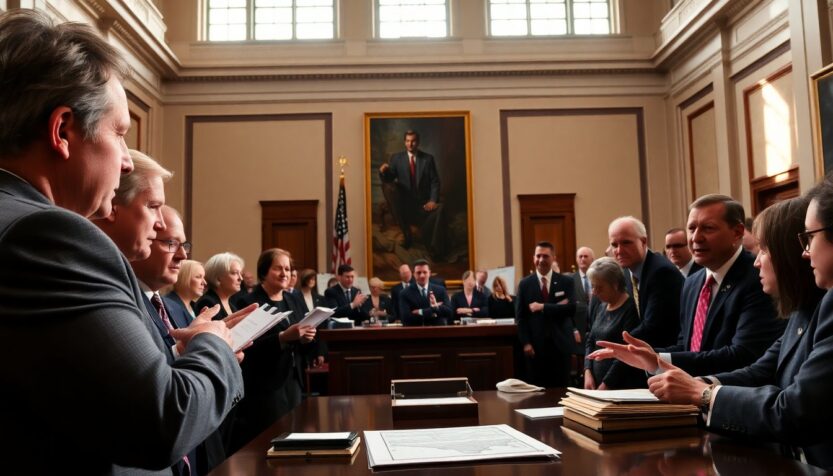During the spring and summer months, Congresswoman Marjorie Taylor Greene made headlines by diverging from her Republican peers on significant matters, including Donald Trump’s spending proposals and the party’s support for Israel’s military actions against Iran. Months later, Greene remains a controversial figure, challenging the expectations and behaviors of traditional Republican lawmakers.
In a recent conversation with The Washington Post, Greene expressed her frustrations with what she perceives as a lack of strength among her male colleagues in the House. She stated, “There’s a lot of weak Republican men, and they’re more afraid of strong Republican women,” suggesting that their insecurity leads to attempts to undermine women who are ready to take action and make a difference.
Criticism of male leadership
Among the Republican men Greene has publicly criticized is House Speaker Mike Johnson, whom she attempted to unseat last year. Greene revealed that she received a barrage of “angry” texts from Johnson regarding her advocacy for the Senate to eliminate the filibuster to resolve the ongoing government shutdown. “He told me they can’t do it, and it’s math,” she recounted, while pointing out that the Senate had recently changed its own rules to confirm nominees with a simple majority vote. “I said, ‘They just did it,’” she added, emphasizing her point.
Gender dynamics in leadership
Greene also hinted at a possible gender bias in how Johnson treats his female colleagues, claiming there is a noticeable difference in his approach compared to that of former Speaker Kevin McCarthy. She argued that McCarthy was more supportive of talented women, whereas Johnson has sidelined them. She highlighted that, under Trump’s administration, women were given prominent roles in his Cabinet, contrasting it with the current leadership where only one GOP congresswoman heads a committee, while there are five women in significant Democratic committee roles.
Greene’s unique position
As the government shutdown continues, Greene has voiced her discontent with fellow Republicans for their failure to devise a solution regarding the expiration of Affordable Care Act subsidies. She expressed disbelief that many of her colleagues are not unified in their approach, asserting, “I’m actually representing what a lot of Americans fully support.” Greene’s boldness was further illustrated when she was one of just four House Republicans to endorse a discharge petition aimed at releasing the complete files related to Jeffrey Epstein, a move that drew attention from various media outlets.
Unexpected alliances
Even as Greene’s views seem to diverge from the mainstream Republican ideology, there remains a connection to Trump. While an anonymous Republican lawmaker noted that she has recently adopted positions that are markedly different from Trump, Greene maintains that she sees Trump as a figure of strength, stating, “He has a very strong, dominant style—he’s not weak at all.” This complex relationship illustrates her navigation through the intricacies of party dynamics while trying to establish her own identity within a largely conservative framework.
Marjorie Taylor Greene continues to disrupt the traditional Republican narrative. Her bold assertions and willingness to challenge both her male colleagues and party leadership highlight a shift in the dynamics of power within Congress. As she pushes for what she believes to be essential reforms, the reactions of her colleagues will likely shape her trajectory and the future of the Republican Party.

